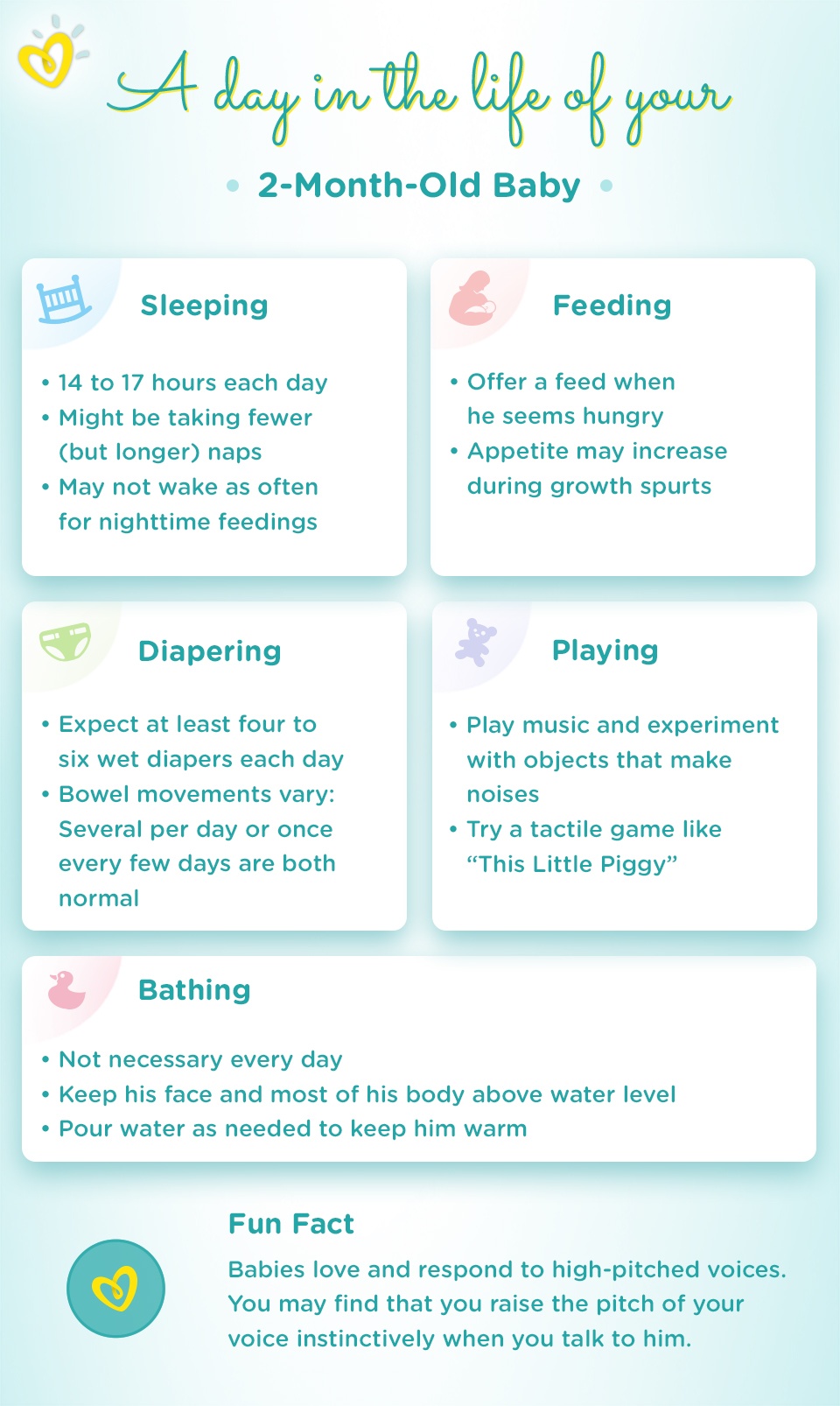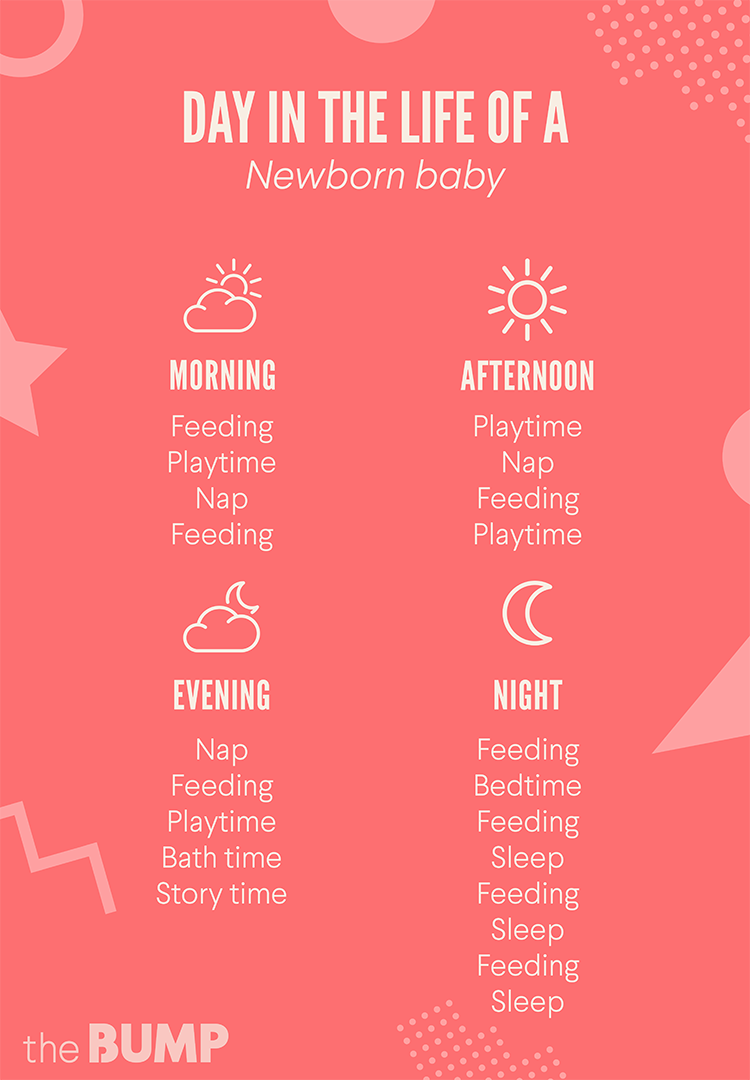Theres a tremendous variance in when babies decide to start strutting usually between 8 12 and 20 months. In fact learning to crawl is commonly considered an important developmental milestone in a babys life.
 When Do Babies Crawl 7 Tips To Help Baby Start Crawling Bellybelly
When Do Babies Crawl 7 Tips To Help Baby Start Crawling Bellybelly
And for many of them the crawling stage doesnt last long once they get a taste of independence they start.

How long until babies crawl. Babies start to crawl around the 9-month marker or later but some start as early as 6 or 7 months while others take their sweet time putting four on the floor. And some babies actually bypass crawling altogether going straight from sitting up to standing to walking. 8 Hold Your Baby In A Crawling Position.
Army crawling is completely normal and is considered crawling. Most babies begin to creep or crawl or scoot or roll between 6 and 12 months. Push-a-long toys help babies become curious about crawling after them or if you roll a soft ball along the floor it encourages them to chase after the ball.
Alternatives to classic crawling. As with most developmental milestones it is normal for crawling to happen at any point across a fairly wide span of timeanywhere from 6 to 10 months of age. The babies use different methods to get a hang of crawling.
Six reasons why crawling is important. In my experience daycare 5yrs some infants only army crawl til they eventually begin standing etc. It all balances out in the end.
Most babies learn to crawl between age 7 and 10 months. This is a building block to crawling. At 6 months old babies will rock back and forth on hands and knees.
By 9 months old babies typically creep and crawl. Most babies learn to crawl between the ages of 6 months to 12 months. This is not to say that your baby may not start crawling sooner than this but on average babies start crawling around 7-10 months.
As the child rocks he may start to crawl backward before moving forward. How else do babies move from place to place. I would not be worried Violation Reported.
Your baby may start learning to crawl from about six months and most babies are moving around by the time theyre nine months old Willacy 2019. Remember some children skip crawling altogether. There is also a variety of crawling styles such as.
Gently hold most of your babys body weight while still allowing their hands and feet to touch the ground. Some babies use another method of locomotion around this time like bottom shuffling scooting around on her bottom slithering on her stomach or rolling across the room. Try making an obstacle course out of soft pillows and cushions for your baby to climb and crawl.
Babies start crawling around 7 to 9 months of age. Crawling is a huge milestone for babies because its the first step toward independent mobility says Rallie McAllister MD co-author of The Mommy MD Guide to Your Babys First Year. Most babies get up on their hands and knees and start learning to crawl between the ages of 6 and 10 months.
Some babies do not crawl at all which is absolutely normal. Most people will tell you 6-7 months for crawling but dont freak if it doesnt happen. By the time she reaches her first birthday shes likely to be crawling well and exploring her surroundings Sharma and Cockerill 2014.
To get your baby crawling allow them to practice. The Centers for Disease Control and Prevention CDC acknowledges that these. What you are getting is the average.
All babies develop differently. According to an international study by the World Health Organization babies usually begin hands-and-knees crawling sometime between 6 and 11 months and approximately half of all babies begin crawling by 83 months WHO 2006. Toys are one of the most enticing things to encourage your baby to crawl.
One great way to do this is to lie next to your baby and support their abdomen while they are on all fours. They roll around slither on their tummies shuffle on their bottoms move like a commando bear walk and soon enough crawl on all fours. Theres a wide range of normal in the timing of crawling.
Crawling offers babies more than just a cute way to get where they want to go. To start crawling your baby needs to have spent a good amount of time on his tummy to develop head control and arm strength. Crawling usually begins around six to 10 months.
Every baby is unique. If your baby spends time on the floor and gets lots of tummy time he may master the skill of crawling sooner.
Below are the approximate hours of sleep needed by children of different ages. And waking to feed shouldnt be necessary since infants this age typically dont need a snack in the wee hours though she may still crave that quiet closeness with you.
 6 Month Old Feeding And Sleep Schedule The Baby Sleep Site
6 Month Old Feeding And Sleep Schedule The Baby Sleep Site
Children 3 to 5 years old.

How long does 6 month old sleep at night. At some point between 3 and 6 months most babies start to sleep for longer stretches at night working up to about 10 hours at a stretch. Babies around 6-months-old sleep on average 11 to 15 hours per 24-hour period. Typical baby sleep schedule for this age.
Most babies dont start sleeping through the night 6 to 8 hours without waking until they are about 3 months old or until they weigh 12 to 13 pounds. By the 6-month mark most babies are able to snooze close to eight hours at night especially if youve established a healthy bedtime routine. Sorensen a pediatrician in Reno Nevada explains that by the time theyre this age most babies can sleep comfortably for at least six hours without waking up to eat.
Bedtimes later than 730 pm can set you up for more night waking. 9 to 12 hours. My baby is waking up 5-6 times from 10pm - 6am.
Dogs usually sleep 9-14 hours a day. And wakes up at 4 am. Babies will sleep four to five hours during the day spread out over three naps.
This means keeping track of bedtimes and nighttime visits. Should 6-Month-Old Babies Sleep Through the Night. Teenagers 13 to 18 years old.
Nap troubles could also be caused by the 4-month sleep regression. By 6 months your baby will likely be eating every 45 hours and may be able to sleep even longer stretches at night. Talk to your pediatrician for exact recommendations for how often your baby.
This means keeping track of bedtimes and nighttime visits. 12 to 16 hours including naps. If she is going to bed at 8 pm and waking at 6 am she is only getting 10 hours of overnight sleep which will leave her in an overtired state.
A typical 4-month-old takes three or four naps a day that are 30 minutes to two hours each. 11 to 14 hours including naps. Generally newborns sleep about 8 to 9 hours in the daytime and about 8 hours at night.
According to Andrea between six and 16 weeks your baby will need around 14-16 hours sleep in a 24-hour period including daytime naps. Remember every baby is different though so some may need more or less. Babies need less sleep as they get older and that means fewer naps too.
Its usual for a baby whos around eight-weeks-old to sleep for six hours at night without waking for a feed says Andrea. Most 6- to 9-month-olds sleep 14 to 15 hours a day between nighttime sleep and naps and are capable of sleeping for long stretches at a time. Puppies can sleep between 18 and 20 hours a day.
Children 6 to 12 years old. 8 to 10 hours. Sometimes she falls back asleep before she even eats but if I put her back in the crib she wakes back up and starts screaming again.
The best way to get through any temporary setback in your childs sleep is to maintain a consistent healthy 6 month old schedule. 6 month old babies sleep an average of 13-14 hours in a 24-hour period with 11-12 hours at night and 2-3 hours during the day. But they may not sleep more than 1 to 2 hours at a time.
Your 6-month-old should still be sleeping about 15 hours a day fitting in two or three naps in addition to the nine to 11 hours of sleep shes logging at night. Your 6 month old needs 11-12 hrs of total overnight sleep. Not all healthy six-month-old babies sleep the traditionally recommended 14 hours so dont worry if your infant doesnt either.
Toddlers 1 to 2 years old. That means a baby who goes to sleep at 8 pm. For her first four months she slept in bed with me and we got even less sleep.
At 6 months babies need an average of 11 hours of uninterrupted sleep each night and 35 hours of daytime naps. At six months old 624 of babies sleep for six uninterrupted hours overnight and 43 sleep for eight uninterrupted hours. A good schedule can help your baby sleep better and eat better.
Is sleeping through the night. Many babies in the 4- to 6-month stage still wake up more than once or twice at night for feedings. There is great variability in infant sleep though.
How much should a 6-month-old sleep. This is a combination of naps throughout the day in addition to sleeping at night. She wakes up and starts screaming and gets louder and louder until I get her and nurse her.
However every baby is different. Many babies this age consolidate their daytime sleep from three naps to two one in the morning and one in the afternoon. If you think your baby sleeps too much and is quite drowsy during the day despite getting a lot of sleep be sure to contact your health care provider.
10 to 13 hours including naps. However the amount of time spent sleeping varies among ages breeds activity levels health and even sleeping locations. Babies 4 to 12 months old.
By the time your baby is 12 months old he or she probably will nurse 79 times a day. Frequent feedings helps stimulate your milk production during the first few weeks.
 2 Month Old Baby Milestones Sleep Feeding Schedule Pampers
2 Month Old Baby Milestones Sleep Feeding Schedule Pampers
A typical feeding schedule may look like this.

How long should newborns feed. The World Health Organization recommends exclusive breastfeeding ie. Cluster feeding can occur any time but for newborns it is usually in the evening and when your baby is fussy. Like breastfed babies bottle-fed newborns should eat on demand.
Some newborns may be sleepy and not interested in feeding. Indeed babies should still drink about 4-6 ounces per feeding when theyre 4 months old. Breastmilk is easy to digest so you need to feed as and when your baby demands.
Some doctors recommend that you introduce new foods one at a time. Most babies do not become really skilled at it until they are well past their first. Things I did to help him understand day and night.
Once they turn 6 months old they may take up to 8 ounces every four or five hours says the AAP. When They Can Completely Feed Themselves Mastering eating with utensils is a long process. A newborn should be put to the breast at least every 2 to 3 hours and nurse for 10 to 15 minutes on each side.
You can try patting stroking undressing or changing the diaper to help wake your baby to feed. No other fluids or solids for six months and then continued breastfeeding combined with solid foods for 2 years or as long as mother and baby desire. In the beginning feeding your baby often follows the time that their little ones are awake.
Newborns sleep in short bursts such as 30 to 45 minutes or even 3 to 4 hours. While breast milk is the best food for your infant formula is a close a second. Newborns should nurse eight to 12 times a day for the first month.
Newborn babies should breastfeed 812 times per day for about the first month. Most newborns need eight to 12 feedings a day about one feeding every two to three hours. Breast milk is easily digested so newborns are hungry often.
It will be up to you to wake your baby gently for their feeding time. As a very rough guide your baby should feed at least 8 to 12 times or more every 24 hours during the first few weeks. It also allows enough time to stimulate your body to build up your milk supply.
How long to continue breastfeeding for is a personal decision for each family to make. Wait two or three days if possible before offering another new food. Cluster feeding coincides with a fussy time of day.
At first babies need to eat about every 2 to 4 hours to help them get enough nutrition and to grow. Wait three days if your baby or family has a history of allergies. This means you may need to wake your baby to feed.
Its fine to feed your baby whenever they are hungry when your breasts feel full or if you just want to have a cuddle. It seems common that it starts in the early evening when your baby will start to get fussy and want to cluster feed on and off for hours. As he started to get older and taking more food 35-5oz areas he began to sleep longer at night all on his own.
An average of 20 to 30 minutes per feeding helps to ensure that the baby is getting enough breast milk. These will provide all of the nutrition she needs for growth and. As long as you help your baby understand night and day your baby should adapt on their own.
On average thats about every 2 to 3 hours. If your baby wont eat what you offer the first time try again in a few days. You should feed your newborn 8-12 times every day in the first few weeks and then whenever she shows signs of hunger.
This means no other food or drink besides. In between sleeping periods they will require feeding. WHO and American Academy of Pediatrics AAP suggest that mothers across the globe exclusively breastfeed infants for the first six months of life.
Breastmilk is easy to digest so you need to feed as and when your baby demands. Look for early signs of readiness to feed such as moving the hands to the mouth sucking on fists and fingers and lip smacking. In other words babies should be fed only breast milk or formulaand absolutely nothing elsefor the first six months of life.
Every 2 to 3 hours. There are numerous reasons why a mother might choose to use formula such as adoption difficulty nursing the need to monitor exactly how much food the baby is getting to include other family members in the feeding rituals or because mom might be taking medications that pass through to breast. When your child gets to be 4 to 8 weeks old theyll probably start nursing seven to nine times a day.
The sooner you begin each feeding the less likely youll need to soothe a frantic baby. Fussing and crying are later cues.
It is estimated that people take an average of seven minutes to fall asleep but we should not actually begin dreaming until much later during the sleep cycle. An average person has about 3-5 dreams a night although some people have 7 dreams per night and they last longer as sleep progresses.
A one-hour Japanese television drama adaptation was broadcast in 2000.

How long is dream. Dream Team takes place on a mysterious island and challenges Mario to go between the real world and Luigis dreams to rescue Princess Peach. But experts can provide estimates about how long you may spend dreaming. About an hour and a half into our slumber experience we enter REM or the rapid eye movement portion of rest.
However these dreams tend to be much less vivid or memorable. Theres a place in my heart. Loewenberg added The first dream of the night is about five minutes long and the last dream you have before awakening can be 45 minutes to an hour long Still other researchers arent exactly.
Videos you watch may be added to the TVs watch history and influence TV recommendations. In total sleep experts estimate that we spend around two hours dreaming 8 every night. A place that nobody can see.
The creators of Tearaway and Little Big Planet bring the ultimate inspiration for creativity to the PlayStation 4 in Dreams. If a guy is in a relationship where sexual intercourse takes place say 4 times a month a 2 week break may very well not trigger wet dreams and yes there are some guys that just dont masturbate. Theres a place in my heart That I go when I dream A place that nobody can see Every night I see love I see someone whos waiting Waiting f.
How Long Lyrics If playback doesnt begin shortly try restarting your device. This is when the actual dreaming starts. How Long Do Dreams Last.
Every night I see love. They may last for a few seconds or approximately 2030 minutes. People are more likely to remember the dream if they are awakened during the REM phase.
I see someone whos waiting. Its completely normal for a guy in his thirties to have no wet dreams with a 2-3 week break. Welcome in Bad Dream.
That I go when I dream. Although dreams can last anywhere from a few seconds to about 45 minutes the vast majority of dreams last between 10-20 minutes. Learn more about why we dream how long dreams last why nightmares occur and lucid dreams.
He must be out there. A pointclick game where unique minimalistic art style creates an unforgettable and atmospheric experience. Based on the length of each REM sleep episode dreams can likely last anywhere from a few minutes to upwards of half an hour.
Long Dream is a short story by manga author Junji Ito originally included in The Junji Ito Horror Comic Collection. Dreams is a space where you go to play and create your own worlds games art films music or anything in-between and beyond. A Dad Dating Simulator is a game where you play as a Dad and your goal is to meet and romance other hot Dads.
Travel through the surreal and disturbing dreamland where everything depends on your actions. At times dreams may occur during other stages of sleep. To avoid this cancel and.
The idea is that certain types of experiences take a week to become encoded into long-term memory and some of the images from the consolidation process will appear in a dream. What is the length of the average dream. In the definition of the American Dream by James Truslow Adams in.
Dreams are basically stories and images that our mind creates while we sleep. According to the National Sleep Foundation the average person dreams four to six times per night. The adaptation was directed by Higuchinsky whose film adaptation of Itos Uzumaki had been released earlier the same year.
You might spend as much. The length of a dream can vary. Waiting for someone like me.
The American Dream is a national ethos of the United States the set of ideals democracy rights liberty opportunity and equality in which freedom includes the opportunity for prosperity and success as well as an upward social mobility for the family and children achieved through hard work in a society with few barriers.
In general one nights deep sleep comes in phases like alternating REM fast eye movement and non-REM phases with the first REM phase happening within the first 90 minutes of falling asleep. You probably remember learning in school about the two sleep states non-REM sleep and REM rapid eye movement.
 Baby S Sleep At 3 6 Months Understanding Your Baby S Sleep Needs Little Ones
Baby S Sleep At 3 6 Months Understanding Your Baby S Sleep Needs Little Ones
It lasts for longer periods in the first half of the night and becomes shorter with each sleep cycle.

How long for baby to reach deep sleep. Sleep isnt one long deep slumber says Lucy. Your babys sleep patterns may be unpredictable for a while and theres no need to put him on a sleep schedule just yet though there are some things you can do to encourage good sleep habits. From very deep sleep to deep sleep to light sleep.
In newborns this is called quiet sleep although babies still have occasional body jerks which may cause brief wakings especially before 6 months of age and. Tip on getting baby to sleep. Non-REM or deep sleep is the most restoring of the two and we have a regular heart rate and breathing and sleep quietly.
If your baby wakes 5-20 minutes after initially falling asleep its likely because she did not reach a deep sleep. The amount of time a baby cries typically increases around two weeks of age to two hours a day or so. Your little ones naps will be consolidated too look for about three a day by 5 months of age.
In fact 3-6 months is the trickiest period of baby sleep. There are two sleep stages. How Long Does It Take A Baby To Deep Sleep BY How Long Does It Take A Baby To Deep Sleep in Articles How Long Does It Take A Baby To Deep Sleep If you trying to find special discount you will need to searching when special time come or holidays.
Im sure this holds true for many other infants as well. Incorporating a consistent routine helps indicate to your baby that its time to go to sleep as their body will begin to recognize that its bedtime once your routine becomes a regular practice. The whole premise is if your baby has been sleeping for over 10 minutes then maybe they are ready to stay asleep for a few hours.
Therefore much of his or her sleep is comprised of light sleep often accounting for more than half of their recommended 13-18 hours of shuteye. Of your sleep is deep sleep. REM rapid eye movement the time when dreaming occurs and non-REM deep sleep.
As soon as her eyes close I count down the minutes till they open again. And then its back the other way. In this time your babys sleep patterns will change dramatically.
When you get enough sleep you have more energy. At this point in time your baby requires around 10 to 12 hours of sleep. To help understand the time it takes for one to fall into deep sleep first here are some of the patterns involved in deep sleep.
So if you sleep for 8 hours a night thats roughly 62 to 110 minutes. When initially falling asleep its very common for a baby to take 20 minutes to reach deep sleep. For you deep sleep can persist up to 90 minutes at a time.
However as you get older you require less deep sleep. Create a routine and stick to it so that your baby can fall asleep when its nighttime. For your baby it may not last an hour.
To ensure that your baby doesnt wake up when put in bed after sleeping in your arms wait until the baby enters deep sleep. It then tapers off to about one hour by the time the baby is twelve weeks old. Do this at least 3 hours before bedtime to wear yourself out while not encroaching on your time to wind down and relax before bed.
This same curve applies to premature babies by their adjusted ages. By the time your baby is about 6-8 weeks old you should both be implementing relaxing activities into your nightly schedule. While you may be getting the recommended 7-9 hours of sleep per night if you are not getting enough deep sleep then you will not feel fully rested in the morning.
During deep sleep a variety of functions. We all babies and adults sleep in cycles We go from drowsiness to light sleep then into to deep sleep to very deep sleep. 1 to 2 Months Your newborn will start taking 1-3 hour naps during the day and will sleep only about 15-16 hours per day.
Newborn babies sleep from 11 to 16 hours a day at all hours of the day and night. Babies can take as long as 20 minutes to reach deep sleep. During these few months your babys sleep will become a lot more like ours as adults with more distinct periods of light and deep sleep and more neurologically differentiated sleep cycles.
During deep sleep your brainwaves slow down. At six weeks crying commonly peaks to three hours a day. 4 to 6 months.
Feeling energized means you can get more done including more physical activity which will help you get more deep sleep. Claire has never fallen into a deep sleep in less then 10 minutes. Create a sleep routine.
During this age span you can expect your baby to sleep about 12 to 16 hours a day with some overnight stretches reaching five to six hours in a row this is what they call sleeping through the night. The first stage of deep sleep lasts anywhere from 45 to 90 minutes.
